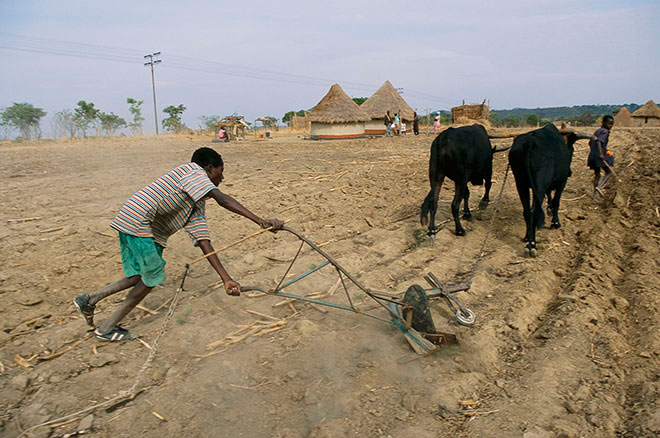Nqobile Bhebhe
ZIMBABWE has no consolidated data base on land allocated to ‘new farmers’ under the fast track land distribution and its current utilisation capacity, a senior official has disclosed.
The Southern African country embarked on land distribution exercise dubbed Fast-Track Land Reform Programme at the turn of the millennium .
The fast-track land reform was meant to correct land ownership imbalances, which saw about 4 500 white farmers (4 percent of the farming population total) owning 11 million hectares (35 percent to 50 percent) of productive land.
The internationally condemned exercise saw tens of thousands of landless locals being allocated farms previously held by around 6 000 white farmers.
In a plain admission of the country’s lack of vital land usage information, Zimbabwe Land Commission (ZLC) chairperson Tendai Bare, told Parliamentary Portfolio Committee on Agriculture, Lands and Rural Resettlement on January 10 that lack of a precise data base was impacting negatively on policy formulation.
Bare added that another major draw back was on crafting viable policies to enhance productivity.
The seize white-owned farmland for redistribution to landless blacks under former President Robert Mugabe’s watch is blamed for plunging once self-sufficient Zimbabwe into food shortages after Harare failed to support black villagers resettled on former white farms with inputs to maintain production.
“The Government of Zimbabwe does not have complete information on how much agricultural land has been allocated and parcelled out, who got what, issues like who that person is and what that person is doing with that piece of land” Bare told legislators.
According to Bare, the “quantum of hectarage of the land” is shockingly not known.
“There is no information on what is the quantum of hectarage of the land. So, without this information the Government is speculating when developing policies on agriculture because they do not have facts.”
since its inception, the commission has been blaming Government for inadequate funding for stalling implementation of most of its programmes, including countrywide land use audits.
In a report tabled in Parliament in July of 2017, the commission said out of an approved budget of $567 138 for 2016, only $452 523 was received.
The land reform programme was marred by double allocation of farms, but the much talked about comprehensive audit, which would cost the country US$$35 million is still a pipe dream.
The ruling Zanu PF bigwigs and securocrats, who are multiple farm holders are accused of stifling land reform efforts.
The land audit is widely expected to expose multiple farm owners and unproductive farms, among other things.
The land commission is expected to conduct periodic land audits and investigate and determine complaints and disputes regarding supervision, administration and allocation of agricultural land.
It is also meant to ensure that there is no discrimination in the allocation of land and that no one holds more than one farm.
In his inaugural speech, Zimbabwe’s new president, Emmerson Mnangagwa, declared that land reform was both necessary and irreversible, and acknowledged some big, outstanding challenges.
The land audit is part of the commitments government undertook in its reengagements efforts.
Zimbabwe’s relations with the West became frosty after the land grab exercise, while it became ineligible to secure long term financing from multilateral financial institutions.
—
twitter-@nqobilebhebhe , NqobileBhehe@gmail.com
Zimbabwe









